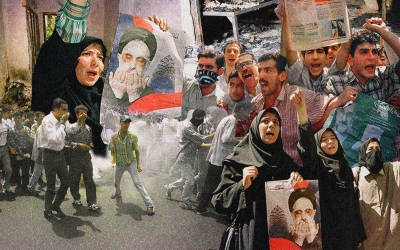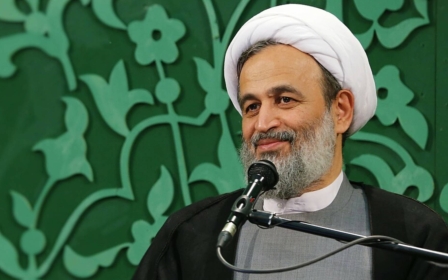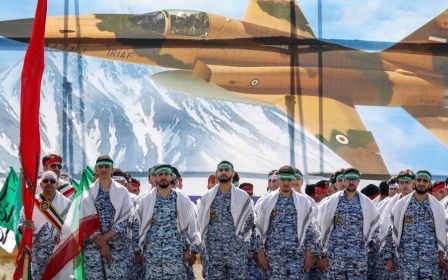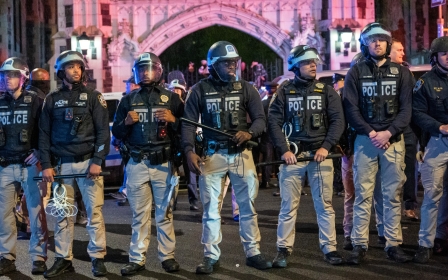Iranian press review: Universities welcome Americans, silence opposition at home

Establishment’s gesture of solidarity draws mixed reactions
As police and universities in the US grapple with protests over Israel's war in Gaza, several Iranian public universities have offered to provide free admission for the protesting American students.
Despite government attempts to organise a propaganda campaign around this topic, many Iranian critics expressed what they saw as double standards, given the history of student repression within Iranian universities.
On Saturday, Khabar Online reported that 13 Iranian universities were willing to admit American students. Their presidents cited a commitment to freedom of expression and equitable education as their motivation.
Massoud Mirzaei Shahrabi, president of Ferdowsi University, condemned the treatment of American students by the police, saying: "Our universities, as guardians of higher education and free thinking, act as bastions for the free exchange of opinions and ideas."
However, critics of the establishment highlighted the irony of state universities welcoming foreign protesters while stifling dissent at home.
Sadegh Zibakalam, a vocal critic of the establishment, lamented the lack of diverse voices in Iranian academia, and criticised the forceful implementation of the hijab law in academia.
“It is noteworthy that in our universities, only the governmental voices support Palestine. Of course, let's not forget that in our universities, the only important topic is to implement the hijab law,” he wrote on X.
Since the 1979 revolution, university students who engage in political activism have faced intense repression. The most notorious episode of such confrontations happened in 1999, when the Basij paramilitary raided Tehran University dormitories.
In recent years, university campuses have also been some of the main places to protest against the obligatory hijab law.
Dissident sentenced to death
Iran’s judiciary sentenced Mahmoud Mehrabi, a dissident arrested in relation to the 2022 anti-establishment uprising for posts he published on social media.
On Monday, Mehrabi’s sister, in a video widely shared on Farsi social media, made a passionate plea for support. She stated that during the trial, the judge said Mehrabi was sentenced to death because “there was no remorse on the accused's face”.
Iran’s judicial system accused him of “corruption on earth” for Instagram posts in which he supported the protests that engulfed the country after the death of Mahsa Amini in Islamic morality police custody in 2022.
The Islamic Revolutionary Guard Corps (IRGC) intelligence forces arrested Mehrabi in February 2023, and he was kept in solitary confinement for over four months. He remains in Isfahan Central Prison.
In July last year, Mehrabi released an audio recording from inside the prison, detailing torture used to extract a forced confession leading to his death sentence.
Mehrabi is one of the latest individuals sentenced to death in Iran for taking part in anti-establishment protests. On April 24, Iran's Islamic Revolutionary Court handed a death penalty to rapper Toomaj Salehi, sparking international anger.
Many rights groups have warned about the increasing number of death sentences and hangings in Iran, stating that the establishment uses the penalty to spread fear among dissidents and to oppress any opposing voices.
A report from Amnesty International last month said Iran executed at least 853 people last year, the highest number for eight years, describing the surge in executions as horrifying with Iranian prisons transformed into sites of mass killings.
Iranian asylum seeker ends life in Turkey
The death by suicide of Iranian asylum seeker Sanaza Jaloei, who had been awaiting a decision on her case for seven years, in Turkey has captured the attention of Farsi media beyond the country's borders.
The suicide shed light on the plight of Iranian asylum seekers stranded in neighbouring Turkey.
On Saturday, BBC Persian reported that Jaloei committed suicide in the coastal city of Antalya, after Turkey’s immigration office rejected her asylum request, announcing that her deportation was to happen soon.
Jaloei's family told BBC Persian that after years of waiting for her case to be processed, she was in a fragile mental situation and the rejection of her request worsened her mental condition.
Iran International, another UK-based Farsi TV channel, reported that seven years ago, the United Nations refugee agency had accepted her asylum request. However, after the UN agency handed over all its responsibilities to Turkey’s immigration office, Jaloei’s request was re-evaluated and rejected.
Official statistics regarding the total number of undocumented immigrants in Turkey are unavailable. However, a significant number of them are Iranian and Afghan refugees who had fled their homelands in search of safety in Turkey.
Many of these asylum seekers have been waiting for years with hopes of eventually reaching Europe or another Western destination.
Recently, there has been a rise in the deportation of Iranians. Human rights activists have repeatedly sounded the alarm about the perilous circumstances confronting asylum seekers upon their potential return to Iran, particularly political activists.
*Iranian press review is a digest of news reports not independently verified as accurate by Middle East Eye.
Middle East Eye propose une couverture et une analyse indépendantes et incomparables du Moyen-Orient, de l’Afrique du Nord et d’autres régions du monde. Pour en savoir plus sur la reprise de ce contenu et les frais qui s’appliquent, veuillez remplir ce formulaire [en anglais]. Pour en savoir plus sur MEE, cliquez ici [en anglais].






